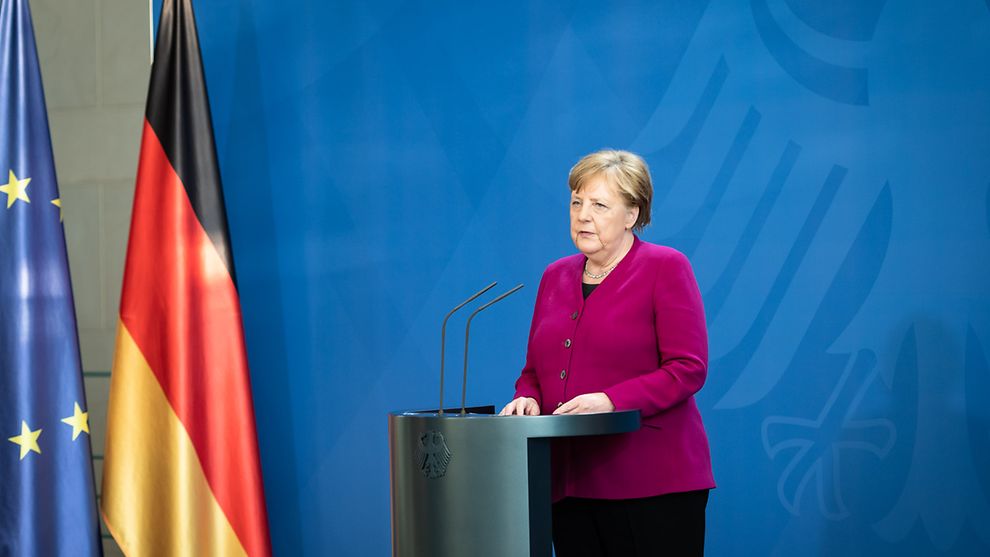Merkel has closed the EU agreement with Poland and Hungary to protect German car manufacturers

For the Politico.eu site it was the large German companies that played a decisive role in Angela Merkel's mediation with Hungary and Poland: German cars are produced in those two countries… The article by Tino Oldani for Italia Oggi
How is it possible that the EPP, the European People's Party, the largest in the EU parliament, continues to tolerate among its members a party like Fidesz, whose leader Viktor Orbàn is considered a transgressor of the rule of law? Why did Angela Merkel, with her mediation on the rule of law , allow Poland and Hungary to cry out for victory, while the majority of EU countries demanded their swift condemnation? An episode of last week, within the EPP, helps to respond. The leaders of the European parties that belong to the EPP met to decide whether or not to expel the head of the Fidesz delegation in Brussels, the MEP Tamàs Deutsch, who during a plenary session of the parliament compared the opinions of Manfred Weber on Poland and Hungary to the slogans of the Nazi Gestapo.
An offense deemed intolerable: Weber, a German, is the leader of the EPP, and has repeatedly denounced Poland and Hungary for violating the rule of law. Not only that: he was also among the most tenacious supporters of the Rule of Law Regulation, approved by the EU parliament and aimed at financially punishing European states that do not respect the independence of the judiciary, freedom of the media and LGBT rights, with clauses that seem tailor-made to hit Poland and Hungary. With these premises, the decision to expel the Hungarian Deutsch from the EPP group seemed obvious. But no: after a long debate, the leaders of the EPP have opted for a middle ground, a compromise that suspends Deutsch's speaking rights in the next plenary sessions of the EU parliament "until further decisions are taken".
Not a few have seen in this decision yet another confirmation of the pragmatism of Angela Merkel, who did not hesitate to put the concrete economic interests of Germany before the ideological pinpointing of her compatriot Weber, with whom she is no longer on good terms since she replaced him. with Ursula von der Leyen for the leadership of the EU Commission. What German interests are in Poland and Hungary, it is easy to say. Since the fall of the Berlin Wall (1989), the German industry, primarily the car industry, has transformed Eastern European countries into its low-cost workshop, investing something like 30 billion euros in Poland alone. . For giants like Volkswagen and Daimler, the Polish yachting industry HanseYachts has also become an integral part of their component manufacturing base. And just in recent days, Mercedes announced that it will produce a new electric car in a location near Budapest, where it will invest more than 140 billion euros. Audi, BMW and the auto parts giant Bosch have also made large production investments in Hungary.
For the Politico.eu site, more than the high-sounding Brussels deliberations on the rule of law, it was the large German companies that played a decisive role in Angela Merkel's mediation. This should be added to some rather uncomfortable historical legacies for Germany in general, and for Merkel as the leader of the largest party in both Germany (CDU) and Europe (EPP).
In terms of bilateral relations, those between Germany and Poland have never been excellent. On the contrary, last summer Warsaw hesitated for a long time before accepting the new German ambassador to Poland, and when it yielded to pressure from Berlin, it did so on a controversial date: September 1, the anniversary of the German invasion of Poland in 1939, which triggered the Second World War. Germany's refusal to address the issue of war reparations to Poland must also be taken into account. So much so that the Polish MEP Rosa Thun, whose Platforma party is part of the EPP, if on the one hand she says she is in favor of expelling the Hungarian Fidesz, on the Polish side she is more indulgent, so much so that she tells Politico.eu: "Nobody has much patience with Poland like the Germans. They have done so much harm to this country, they feel embarrassed ».
As for Hungary, analysts agree that Viktor Orban's party is considered by Merkel to be a sort of Hungarian clone of the CDU since she herself first entered government in 1990, with Helmuth Khol chancellor and her great protector. For the German conservatives, the Hungarian party Fidesz represented for years the victory of democracy over communism. Something that Orban repeated recently in an interview with Die Zeit : "Our Christian-nationalist government assumes more or less the same position as the CDU under Helmut Kohl". However, according to some sources close to the Chancellor, the friendship between Merkel and Orbàn has become increasingly tepid in recent years.
(extract from an article published in Italia Oggi; here the full version )
This is a machine translation from Italian language of a post published on Start Magazine at the URL https://www.startmag.it/smartcity/merkel-ue-polonia-e-ungheria-per-tutelare-le-case-auto-della-germania/ on Sat, 26 Dec 2020 07:55:15 +0000.
